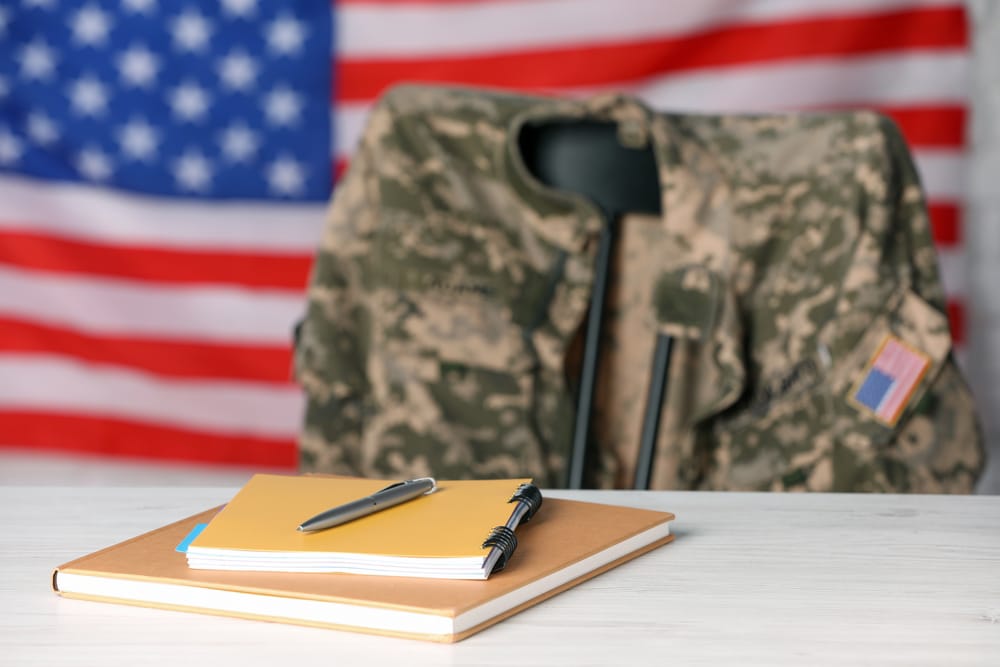GI Bill Benefits And Non-College Degree Programs For Veterans

Certain service members may prefer to pursue specialized training programs rather than enrolling in traditional four-year colleges. Fortunately, they can leverage their GI Bill benefits to cover the costs of such programs. The Department of Veterans Affairs(VA) website offers a comprehensive list of GI Bill-approved non-college degree programs, catering to individuals seeking on-the-job training, work-study opportunities, business training, and more.
These programs encompass:
- Veterans Technology Education (VET TEC) courses
- Flight training
- Entrepreneurship training
- Work-study
- Co-op training
- On-the-job training and apprenticeships
What Is The GI Bill?
The GI Bill is commonly employed to cover higher education expenses, whether at a public university, private institution, or any other educational facility endorsed by the Department of Veterans Affairs.
Additionally, it can serve as financial support for non-college degree programs that equip students with practical professional skills, including but not limited to truck driving, cosmetology, HVAC repair, and various other approved alternatives.
Who Is Eligible For GI Bill Benefits For A Non-College Degree Program?
Veterans, service members, and eligible dependents such as spouses and children can potentially utilize the GI Bill veterans benefits to fund non-college degree programs, provided they enroll in a school approved by the VA.
What VA Benefits Veterans Can Obtain?
Depending on your chosen program, you can receive various benefits from your GI Bill, as outlined by the VA:
- Tuition and fees
- Stipend for books and supplies
- Monthly housing allowance
The amount and type of benefits you receive are influenced by multiple factors, such as the GI Bill program you utilize, your chosen program of study, and the duration of your coursework, as per the VA. In certain situations, you might also be eligible for a one-time $500 rural benefit if you move from a highly rural area.
Highly rural areas, according to the VA, are characterized by having six or fewer people per square mile. To be eligible for this benefit, you must either move a minimum of 500 miles to attend school or travel by air when there's no available land-based transportation.
How to Apply For VA Education Benefits?
- Apply via Mail by Requesting an Application
- Personally apply
- Seek Assistance from a Veterans Service Officer (VSO) to Apply
Also, you can apply for VA education benefits online to enroll in a non-college degree program. As a component of your application, you must include the following documents:
- Social security number
- Bank account direct-deposit information
- Education history
- Military history
- School information
Utilizing The GI Bill To Pay For Your Certification Testing
Some non-college programs may necessitate certification testing for course completion. If you're mandated to undergo certification testing outside of the program, you might be eligible to utilize the GI Bill to cover some or all of the applicable testing fees.
According to VA.gov, eligible veterans can receive up to $ 2,000 to cover test fees for jobs that require licensure or certification. You can use VA.gov's search tool to find approved tests and their fees. The VA offers to pay for multiple approved licenses or certifications you would like with specific caveats and reminders, including:
- The VA covers test fees regardless of whether you achieve the required score for your license or certification
- You are allowed to take the same test multiple times until you obtain certification
- The VA does not cover expenses for getting the physical license or certification document
- The VA will not cover fees exceeding $2,000 for a single test.
Utilizing The GI Bill For Distance Learning
You could be eligible for a housing allowance if you select an online non-college degree program and use the Post-9/11 GI Bill. However, if you're exclusively taking distance-learning courses, the housing allowance is usually 50% of the national average.

